Ep. 90 Do you get scary thoughts too? with Dr. Caroline Boyd
[soundcloud url="https://api.soundcloud.com/tracks/756578998?secret_token=s-RiMRv" params="color=#ff5500&auto_play=false&hide_related=false&show_comments=true&show_user=true&show_reposts=false&show_teaser=true" width="100%" height="166" iframe="true" /]
This week’s episode comes with a trigger warning. I’m talking about intrusive, unwanted harm thoughts with the wonderful Dr. Caroline Boyd.
I didn’t realise this before I recorded the episode, but this is a really common issue – as you’ll learn, most parents will at some point experience intrusive, scary, harm thoughts about their children. However, it’s something that just isn’t spoken about, so I’m really glad we’re having this conversation.
Caroline is a clinical psychologist, a writer and a mother. Her doctoral research was on intrusive thoughts, so she’s the perfect person to explore this with. We speak about where intrusive thoughts come from, why they happen and how to manage them. I share my own experience with intrusive thoughts and Caroline shares her experience, as well as those of some of the people who took part in her study
Our intention is that in listening to this you feel comforted and come to realise how normal this is. If you’d like more information, you can head over to Caroline’s website and even read her research paper. I hope you enjoy the episode.
You can download a transcript of this week’s episode here.
As always, we continue the conversation over on Instagram, so once you’ve listened to the episode, come and join me there.
Key takeaways from this week’s episode:
What Are Intrusive Thoughts?
-
Have you ever had the sudden urge to scream and disturb the peace of a quiet place? Or maybe you’ve thought about pushing someone into the train tracks. These urges are called intrusive thoughts, and they’re common in the general population. (03:37)
-
In her doctoral research, Caroline focussed on unwanted, intrusive thoughts of harm related to a baby. She interviewed eight women about their experiences with harm thoughts. (04:18)
-
Unwanted thoughts of harm about the baby can be word thoughts, mental images, or urges or impulses. (04:47)
-
These thoughts take two forms: accidental harm and intentional harm. (05:03)
-
Harm thoughts can be vivid. The content of the thoughts also tends to change depending on what your current concerns are. (08:22)
Prevalence of Harm Thoughts
-
Intentional harm thoughts amongst new mums come with intense emotions. They are upsetting and uncontrollable. (09:28)
-
Harm thoughts are a taboo topic, and women feel guilty about them. But having these kinds of thoughts doesn’t mean you pose a risk to your baby. (11:02)
-
If a mother expresses an intent to harm her baby or has a history of doing it, it needs to be taken seriously. But when she’s only having anxious harm thoughts, her mental health needs to be the priority. (11:52)
-
Research shows that having accidental harm thoughts is universal. (12:50)
-
Caroline believes antenatal classes should teach mums about intrusive thoughts. (13:22)
Ideology of Motherhood
-
Mothers don’t talk about harm thoughts because it clashes with the ideas of what it means to be a good mum. (17:01)
-
Half of the women she interviewed in her study were worried that they were mad, bad or dangerous mums. And if they share them, they fear they will be deemed unfit mothers and their baby will be taken away. (17:47)
-
Our early experiences of being parented, combined with cultural pressures, shape our idea of a good mum. (18:19)
-
One dominant ideology of motherhood is the Supermum Myth in western culture. It’s the idea that motherhood is natural, blissful and fulfilling to women. (18:28)
-
This myth perpetuates that women must only have positive feelings about motherhood. Having negative feelings means you’re a bad mum. (19:44)
-
In reality, women go through a lot of changes in their brain, body and identity postpartum. Thus, internalising the Supermum Myth can be toxic. (20:15)
Managing Harm Thoughts
-
Talking about harm thoughts can help normalise it. Mums will feel less isolated if they can share their thoughts. (21:49)
-
Caroline encourages mums to be brave and talk about their harm thoughts with their partner or mum friends. (22:39)
-
Giving mums a space to talk about their harm thoughts without being judged also helps validate them. (23:42)
-
Harm thoughts are our brain’s way of alerting us to potential threats. (24:39)
-
When we avoid our harm thoughts, they only increase in power and intensity. (26:23)
Advice for Parents
-
Dads have harm thoughts too. (28:49)
-
Recognise the power of the Supermum Myth and actively resist it. (29:04)
-
Tell yourself gently, ‘I am not my thoughts’. (30:51)
-
Practise mindfulness around your harm thoughts. Notice your harm thought, acknowledge it with kindness and then let it go. (32:36)
-
Understand that harm thoughts are adaptive responses to adjusting to the responsibility of having a baby. (38:51)
-
Use your breath as a healing tool to activate your relaxation system. (40:37)
-
Get physically active. (41:26)
-
Distract yourself with simple pleasures like reading, listening to music or making a cup of tea. (41:43)
-
If you want to try mindfulness, you can start by turning your attention to your surroundings. (42:20)
-
If you have an overwhelming impulse to hurt yourself or your baby, seek help. (42:58)
About Caroline
Caroline Boyd is a clinical psychologist. She helps new parents transition to parenthood and embrace its highs and lows. Her doctoral research explores mothers’ unwanted harm thoughts about their babies. Results show how motherhood myths and ideologies shape their idea of a ‘good mum’.
For more information about Caroline’s research, visit her website at drcarolineboyd.com. You may also connect with her on Instagram, @_drboyd.

